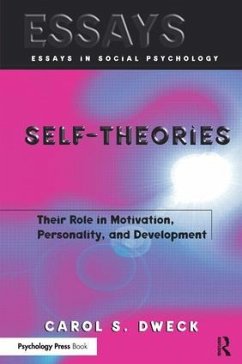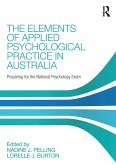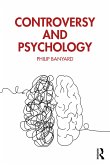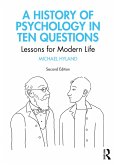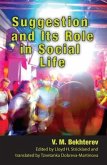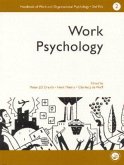This innovative text sheds light on how people work -- why they sometimes function well and, at other times, behave in ways that are self-defeating or destructive. The author presents her groundbreaking research on adaptive and maladaptive cognitive-motivational patterns and shows:
_ How these patterns originate in people's self-theories
_ Their consequences for the person -- for achievement, social relationships, and emotional well-being
_ Their consequences for society, from issues of human potential to stereotyping and intergroup relations
_ The experiences that create them
This outstanding text is a must-read for researchers in social psychology, child development, and education, and is appropriate for both graduate and senior undergraduate students in these areas.
_ How these patterns originate in people's self-theories
_ Their consequences for the person -- for achievement, social relationships, and emotional well-being
_ Their consequences for society, from issues of human potential to stereotyping and intergroup relations
_ The experiences that create them
This outstanding text is a must-read for researchers in social psychology, child development, and education, and is appropriate for both graduate and senior undergraduate students in these areas.
"Based on extensive research with children and young adults, this book examines adaptive and maladaptive cognitive-motivational patterns and shows how these patterns originate in people's self theories; their consequences for one's achievment, social relationships, and emotional well-being; thier consequences for society; and the experiences that create these cognitive-motivational patterns." -- Resources in Education
"What we have here is no ordinary scholarly psychology volume. Ever so rarely, we are offered a psychology book that is so beautifully written, lucidly organized, and elegant in its description of ideas... I see many uses for this wonderful volume. Instead of having to put together a rather large stack of reprints to introduce students to her groundbreaking work, I now can refer them to something far better -- the author's view of how her work has developed over the years." -- Journal of Social and Clinical Psychology
"[This book] describes pathbreaking research in a style that is accessible to many audiences. It calls into question some of the most widely-held beliefs . . . about effective practices for maximizing children's self-confidence and learning." -- Deborah Stipek, UCLA
"The book is central to basic issues in social, personality, and developmental psychology. Indeed, it is like a guided tour through the scenic terrain of Carol's fascinating program of research. The writing is lively and engaging and the organization is unusually clear. The examples are well-chosen and intuitively compelling; they are easy to relate to our own lives and to the people that we know." -- Diane N. Ruble, New York University
"[This book] is simply among the best book in psychology I've read during the past year or two. It's superb. . . I could hardly put [it] down." -- Robert J. Sternberg , Yale University
"The book is central to basic issues in social, personality, and developmental psychology. Indeed, it is like a guided tour through the scenic terrain of Carol's fascinating program of research. The writing is lively and engaging and the organization is unusually clear. The examples are well-chosen and intuitively compelling; they are easy to relate to our own lives and to the people that we know." -- Diane N. Ruble, New York University
"[T]his is an important book addressing fundamental problems of enduring interest. [W]e think Self-Theories should be read by anyone with a serious interest in children's motivation, academic achievement or social development." -- Human Development
"This book does a great deal to undo the damage done by psychology books which have emphasised the importance of intelligence and of fixed stages which pupils and students cannot move out of, or work beyond... The contents of this delightful affirming book should be known to every teacher and every pupil, and most of all to every teacher trainer. -- David Turner, University of Glamorgan." -- Book Review
"What we have here is no ordinary scholarly psychology volume. Ever so rarely, we are offered a psychology book that is so beautifully written, lucidly organized, and elegant in its description of ideas... I see many uses for this wonderful volume. Instead of having to put together a rather large stack of reprints to introduce students to her groundbreaking work, I now can refer them to something far better -- the author's view of how her work has developed over the years." -- Journal of Social and Clinical Psychology
"[This book] describes pathbreaking research in a style that is accessible to many audiences. It calls into question some of the most widely-held beliefs . . . about effective practices for maximizing children's self-confidence and learning." -- Deborah Stipek, UCLA
"The book is central to basic issues in social, personality, and developmental psychology. Indeed, it is like a guided tour through the scenic terrain of Carol's fascinating program of research. The writing is lively and engaging and the organization is unusually clear. The examples are well-chosen and intuitively compelling; they are easy to relate to our own lives and to the people that we know." -- Diane N. Ruble, New York University
"[This book] is simply among the best book in psychology I've read during the past year or two. It's superb. . . I could hardly put [it] down." -- Robert J. Sternberg , Yale University
"The book is central to basic issues in social, personality, and developmental psychology. Indeed, it is like a guided tour through the scenic terrain of Carol's fascinating program of research. The writing is lively and engaging and the organization is unusually clear. The examples are well-chosen and intuitively compelling; they are easy to relate to our own lives and to the people that we know." -- Diane N. Ruble, New York University
"[T]his is an important book addressing fundamental problems of enduring interest. [W]e think Self-Theories should be read by anyone with a serious interest in children's motivation, academic achievement or social development." -- Human Development
"This book does a great deal to undo the damage done by psychology books which have emphasised the importance of intelligence and of fixed stages which pupils and students cannot move out of, or work beyond... The contents of this delightful affirming book should be known to every teacher and every pupil, and most of all to every teacher trainer. -- David Turner, University of Glamorgan." -- Book Review

